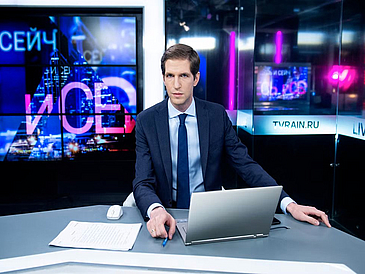How does independent information affect political behavior in a context where almost all media are state-controlled? To answer this question, Ruben Enikolopov (Pompeu Fabra University), Koen Schoors (Ghent University), Nikita Zakharov (Albert Ludwig’s University Freiburg), and Michael Rochlitz (University of Bremen) conducted two randomized field experiments before the Russian Duma elections in September 2016. Three weeks before the elections, the paywall for the independent TV channel TV Rain, which is normally only available on the internet for a fee, was lifted in 15 randomly selected Russian cities. At the same time, the researchers financed an advertising campaign for the TV channel in the same cities, as well as a survey experiment.
The study finds that independent media leads to an increase in political polarization, but only among people who get their information mainly from social media and the internet. For people whose source of information is mainly government television, the additional source of information led to a uniform decrease in political support for the state. The study's finding may explain why many autocracies tightly control television, but allow some degree of free discussion on the internet.
The paper was accepted for the 2022 Summer Meetings of the National Bureau of Economic Research (NBER), and can be downloaded via the following link:

